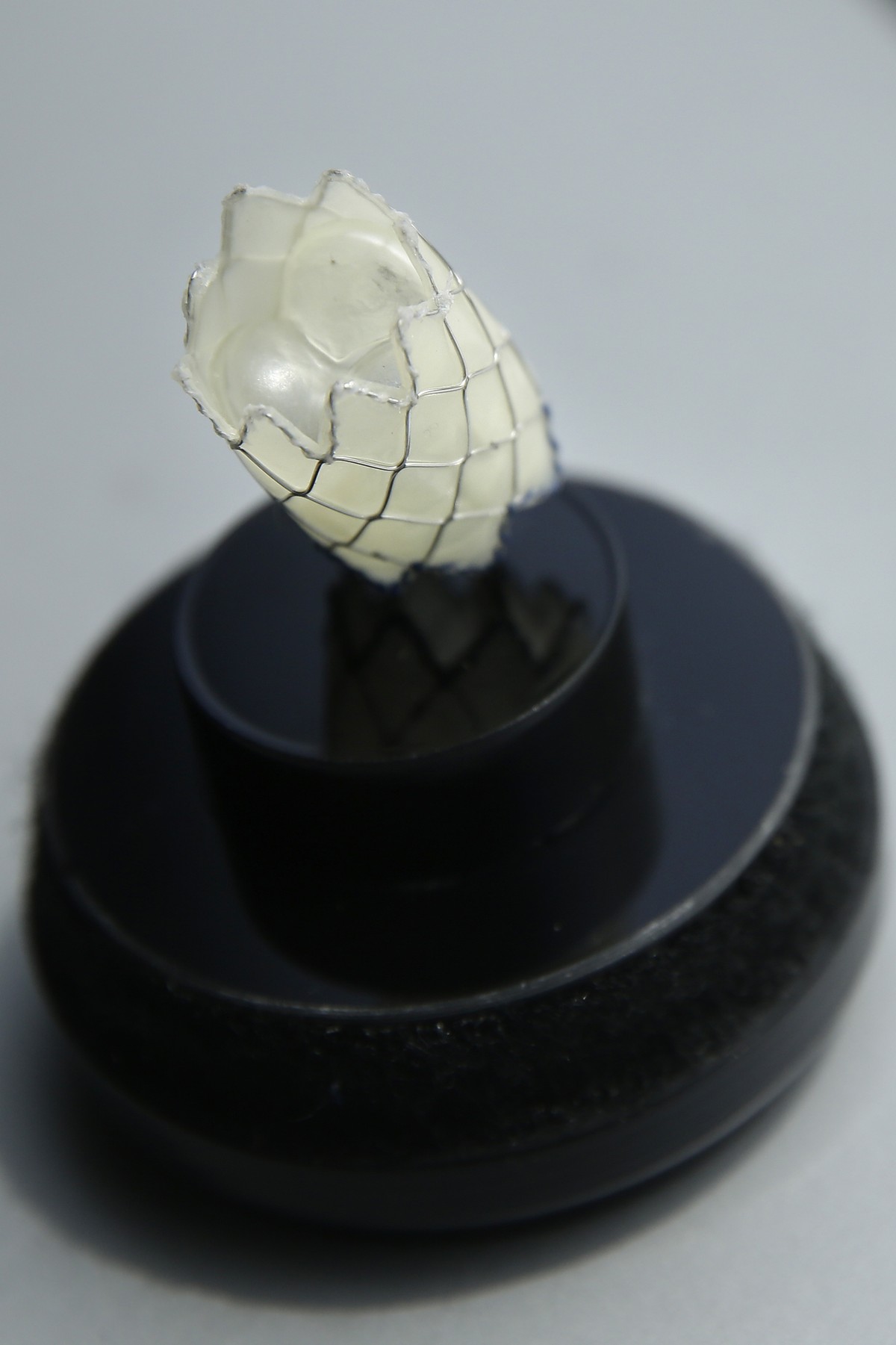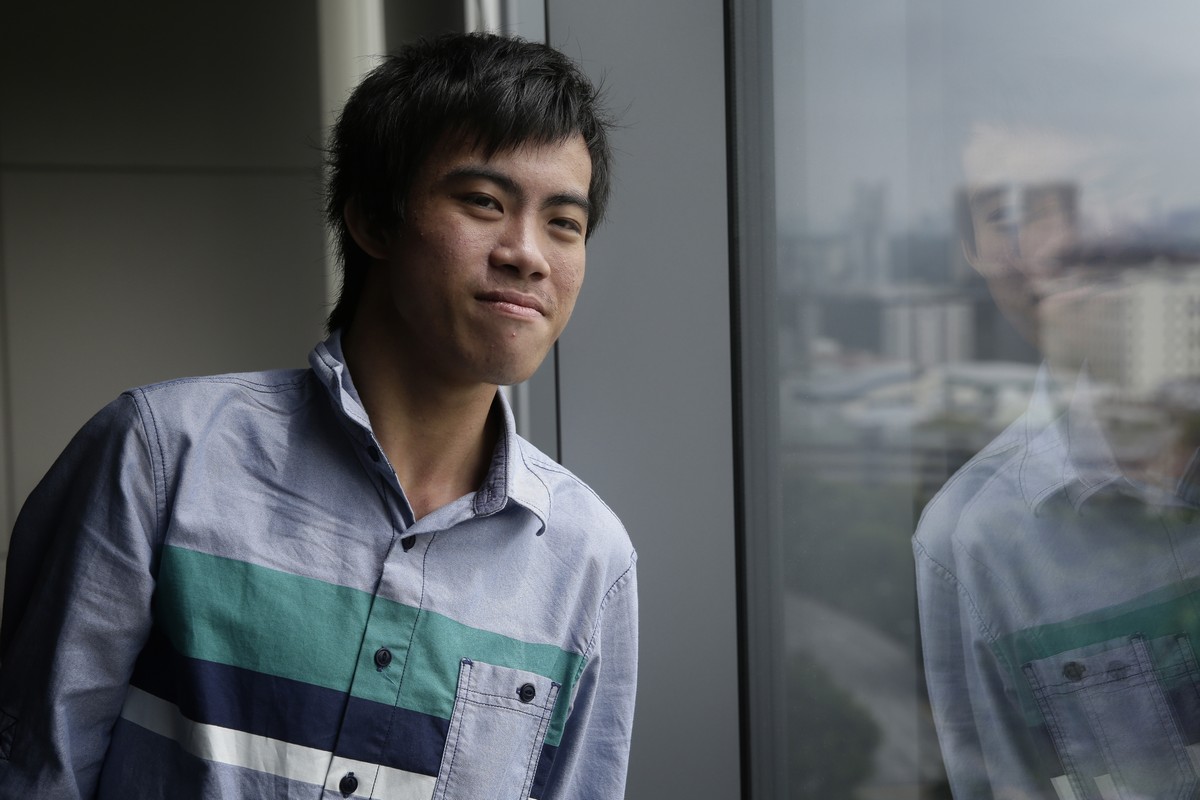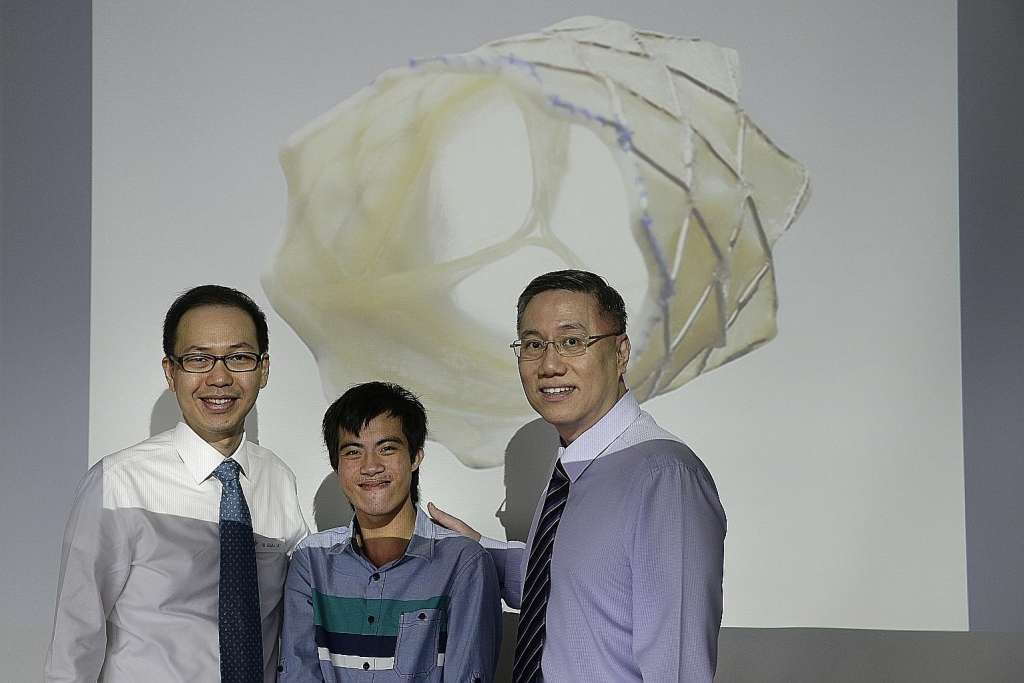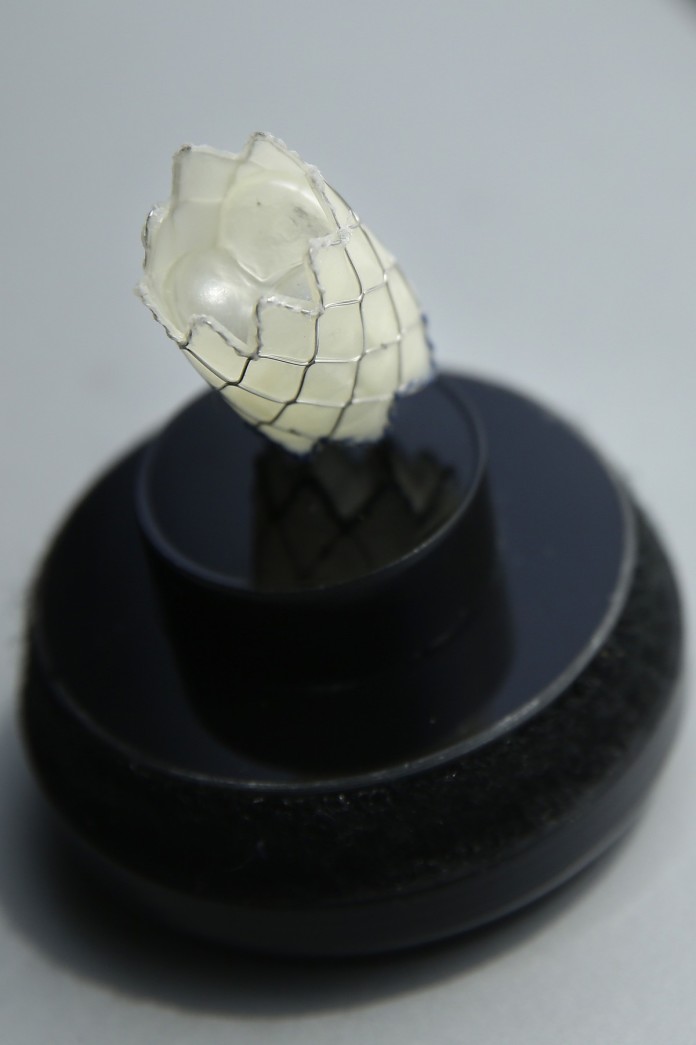For the first time in Singapore, doctors are able to treat a form of congenital heart defect without open heart surgery.
A specially designed heart valve is delivered into the patient via a leg vein near the groin instead to treat Tetralogy of Fallot, a defect that affects the functioning of the valve.
This procedure has been successfully carried out on two patients here since August by a team of congenital heart specialists from the National University Heart Centre, Singapore (NUHCS) and the department of paediatrics at National University Hospital (NUH).

In this minimally invasive procedure, doctors insert a thin, hollow tube containing the heart valve into the vein and push it up into the heart. The valve is crimped into a small size but expands with the help of a balloon once it is in the right position .
The procedure takes a few hours and helps to improve heart function so that the need for open heart surgery can be delayed.
Tetralogy of Fallot affects about two in 1,000 live births here. Among other problems, the defect affects the normal functioning of the pulmonary heart valve, which controls blood flow from the right chamber of the heart to the lungs.
While this defect can be picked up early during pregnancy, those born with the condition often have to undergo multiple surgical operations throughout their lifetime.
This is because a patient’s valve is usually replaced by a synthetic tube or blood vessel from a human cadaver early on in life, but this is prone to become leaky or narrowed due to wear and tear.
As a result, patients typically have to undergo a repeat surgical operation every 10 to 12 years, said Dr Edgar Tay, senior consultant at the department of cardiology at NUHCS.
“It (repeat surgery) is almost unavoidable because this is not nature’s gift of a normal vessel,” said Dr Tay, who added that the new procedure will reduce the risks of repeat surgery.
He said: “Patients’ families will tell you that it reduces the psychological stress of repeat surgery.”
Otherwise, patients would have to undergo two open heart surgical operations with the uncertainty about the outcome of the surgery, he added.
While the new procedure was first done in Singapore only in August, it was first performed in London in 2000.
Studies so far have shown good results. For instance, the valves of almost all patients who went through the procedure were free of leakages for up to five years.
While the new device costs $30,000, Associate Professor Quek Swee Chye, head and senior consultant of the division of paediatric cardiology at NUH, said he hopes the new treatment will prove to be cost-effective in the long run.
“If you look at the total package – with a shorter hospitalisation and costly device, it may still be cheaper than a long-term hospitalisation plus the expensive surgery and the manpower to look after the patient post-operatively,” he said.
“Hopefully if proven to be good, some day there will be subsidy from the ministry,” he added.

One patient who has tried the new procedure is Mr Gary Cheng.
The 21-year-old underwent his first surgery to have his heart valve replaced when he was just two.
About a year ago, however, Dr Tay realised that his heart function had started to deteriorate.
As his parents were not keen for him to go for another surgery, he decided to go for the new procedure in August.
“The procedure wasn’t painful and I can resume my normal activities now,” said Mr Cheng, who is a trainee at a sheltered workshop at voluntary welfare organisation Movement for the Intellectually Disabled of Singapore.
He is now able to pursue recreational activities such as badminton, without worry that his heart might fail.

This article was first published on Nov 22, 2016.
Get a copy of The Straits Times or go to straitstimes.com for more stories.







